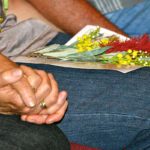Throughout 2019 we will be highlighting projects funded by the RAD (Records Access Documentation) Grants.
In 2017, St Joseph’s Cowper transferred its operations to MacKillop Family Services. The hand-over included the records of more than 2000 children who spent time living at St Joseph’s Orphanage in Cowper, outside Grafton, NSW from 1914 to 1972.

St Joseph’s Orphanage, Cowper, NSW
As with many records kept about children in care from this time, the files were poorly stored, and never correctly indexed or catalogued. This meant that those who were the subject of the files have experienced difficulty in finding out basic information about their lives. With the support of a RAD Grant, MacKillop Family Services will catalogue, index, digitise, and safely store records including 2125 client file cards and 466 Baptismal records from 1920 to 1972. People who spent time in St Joseph’s Orphanage will now be able to access vital information about their childhood. As well as being accessible, the records will also be protected from any further damage.
MacKillop Family Services’ work is underpinned by the Sanctuary Model, an evidence-based, trauma-informed framework. Whilst the records will be stored in a safe facility in Victoria to protect them from further damage, support will be available in Grafton for those who want personal assistance through the records access process.
As increasing numbers of people who were in care are accessing records held by MacKillop Family Services, this RAD funded project will ensure that those who could not previously find records and were in danger of losing them due to poor storage and neglect will now be able to find information vital to helping them understand who they are.
MacKillop Family Services is located in Melbourne, Victoria.
Find out more about MFS at: https://www.mackillop.org.au/our-services/heritage
For more information on St Joseph’s Orphanage, see: www.findandconnect.gov.au/ref/nsw/biogs/NE00172b.htm






Frank Golding
August 30, 2019 2:46 pmIt’s good news that these records have been preserved and will now be catalogued, indexed, digitised and stored safely. But I feel some ‘buts’ coming on. Why must this valuable work be done in Melbourne? Why must the records be moved interstate? Will this be a permanent arrangement? Will former residents know this is happening? Were they consulted? How will they gain access into the future? Is this a precedent for other records collections?
I’m sure these questions have been thought through, but can we have some clarification?
Find & Connect
August 30, 2019 3:59 pmThanks for your comment, Frank.
Firstly to clarify, the RAD funded part of this project is part of a wider project that has been funded by MacKillop to improve access and protect these records. The decision that the records needed better protection than could be provided in Grafton was made prior to and separate from the funding that was provided by the RAD Grant, which is to catalogue, index and digitise the records. RAD funding is not being used to move the records.
As to your questions, the facilities don’t exist in NSW for MacKillop to do this work, but they do have facilities in Melbourne which will ensure the files will be preserved and no further damage caused to them. Former residents will now be able to access the records that they haven’t been able to access prior to this, and the files can be recorded (on Find & Connect as well as through MacKillop) so residents are aware of what is available to them and how to access their records. Access will be supported through the office in Grafton if former residents want or need personal assistance, or they can apply through MacKillop to receive their records how best suits them, in keeping with MacKillop’s commitment to trauma-informed practice.
This is an unusual circumstance in that records that had been poorly kept came to be held by an organisation based outside of the area where they were located, but with exisiting facilities for records storage and retrieval elsewhere, so it can’t be considered a precedent.